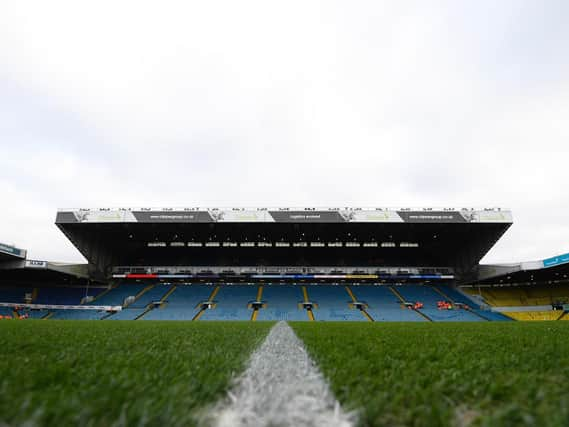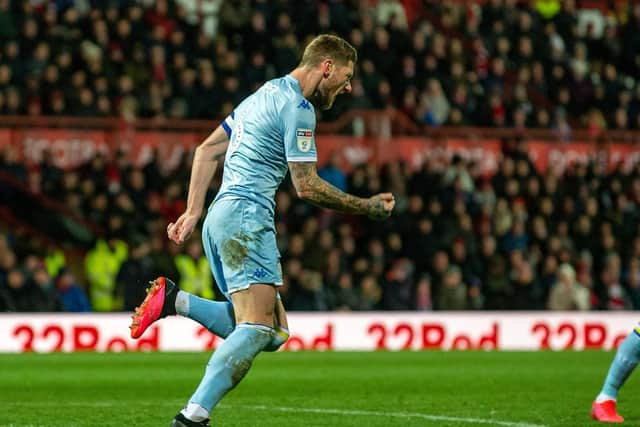Expert reveals Leeds United and Marcelo Bielsa's psychological behind-closed-doors Elland Road challenges


A game with so much riding on it, on what was a perfect evening for football, with the lights shining down on a pitch set to grace two teams capable of playing scintillating football – it would have been brilliant.
On Saturday the teams will walk out at Elland Road, not together, but staggered under the new guidelines, with no atmosphere.
Advertisement
Hide AdAdvertisement
Hide AdThe Whites’ first taste of football behind closed doors was a sobering reminder that the sport’s very soul is found in its soundtrack, in the noise that greets each on-field event.
Players can feed off the noise and the collective feeling of a packed stadium. It can spur a team on or inspire a comeback. It can also amplify nerves and negative tension. Fans play a huge part.
They won’t do this Saturday, no matter how many thousands of ‘crowdies’ are affixed to the empty seats. The very people who make Elland Road special, the voices that create the famous atmosphere, will be absent.
And that has the potential to impact performances.
“The Elland Road crowd, the effect of the crowd first and foremost is to intimidate opponents,” said Leeds fan and clinical psychotherapist Gary Bloom.
Advertisement
Hide AdAdvertisement
Hide Ad

“I’ve spoken to a lot of people who’ve played at Elland Road in opposition and they say it’s just terrifying. You take a throw in and there’s 40 or 50 people calling you you know what.
“You tend to hurry things, you get what’s known as over-aroused in sports psychology, you stop thinking about what you’re doing.
“But also, I’ve been in the crowd at Elland Road as a fan and if we have a couple of bad misses in the opening half an hour that crowd can quite easily turn – and I think this is getting gradually worse – with anxiety.
“You’re not having the anxiety there, but at the same time you’re not having the crowd intimidating opposition.”
Advertisement
Hide AdAdvertisement
Hide AdThe new normal and its empty stadiums have given people working on the mental side of performance something fresh to work on and study.
It has thrown up a question that Leeds must answer.
“If you’re not getting your energy from the crowd, who are you getting your energy from?” asks Bloom, who is part of the set-up at League One play-off qualifier Oxford United.
“There are two types of players, players who will play football because they love football and will still be playing on a Sunday afternoon on a park pitch somewhere, and there are players who are entertainers.
“The entertainers need the crowd, they need the energy from the crowd. Every team has a mixture of both.
Advertisement
Hide AdAdvertisement
Hide Ad“I’ve done a lot of work at Oxford on the energy having to come from other team-mates, the quieter ones just have to step up a bit.
“There will be people who can motivate themselves and players who need external motivation from [Marcelo] Bielsa or the Leeds United staff.”
Howard Wilkinson said of his 1991/92 champions of England that he was blessed with leaders who created energy within the dressing room and the rest of his squad ‘joined in’ and fed off the energy.
There were no ‘terrorists’ as he called them, players who drain the energy from those around them.
Advertisement
Hide AdAdvertisement
Hide AdThe challenge for Bielsa will be ensuring he not only has leaders on the pitch but that they carry out their duty to energise the rest of the team, to try and compensate for the absence of natural energy from the stands.
“There are essentially three types of leader, one leads by example and can take a game by the scruff of its neck and alter the outcome, one is the bawler and shouter who shouts instructions and the third one is a social leader who brings the group together maybe off the pitch, organises the table tennis tournaments and things like that,” Bloom told the YEP.
“Research has proved that those three roles usually do not reside in just one individual. It’s about on the field leadership and if you are having a tough time and Fulham do find an early goal, who are your leaders? Who are the people who are going to give you that vocal encouragement?
“At Oxford I work on the individual make up and the psychology of the team, so if you are having a bad game who is going to drag you out? Maybe you’re spurred on by winning a free-kick or as our manager calls it, winning a cheap round of applause by smashing into a tackle to get the crowd up. You can’t do that in an empty stadium.”
Advertisement
Hide AdAdvertisement
Hide AdWhen you think of Bielsa’s leaders, players like Luke Ayling, Liam Cooper and Kalvin Phillips spring to mind.
Ayling has shown that ability to lead by example, Cooper is a vocal captain and Phillips, universally popular around the club, routinely lifts the entire stadium with his physicality and crunching tackles.
At Cardiff on Sunday Ayling was substituted as Bielsa attempted to get more offense from his full-backs, while both Cooper and Phillips made errors that led to Cardiff’s two goals.
The problems encountered by the latter two may just have been fluke events, but they might have been another symptom of football in an empty ground.
Advertisement
Hide AdAdvertisement
Hide Ad“It’s very hard to concentrate when there’s no crowd there because your mind begins to wander,” said Bloom.
“I’ve been working with a colleague on this and we’ve been talking about playing whistle to whistle. Every time the referee’s whistle goes you reset your concentration. It’s virtually impossible to concentrate over an hour and a half anyway, but virtually impossible in an empty stadium.”
As if Leeds didn’t have enough to consider ahead of an already huge game, the suggestion from Germany is that home advantage dwindles behind closed doors.
An officiating expert has put forward a theory.
“There’s some interesting work being done on the Bundesliga, where the number of home wins have diminished,” said Bloom.
Advertisement
Hide AdAdvertisement
Hide Ad“It was interesting at the weekend that only two Championship teams won at home.
“I spoke to Mark Clattenburg and he reckoned that the advantage of having a home crowd was largely to do with the impact on the referee and that a referee would give a certain number of decisions to a home side because the crowd would unconsciously steer him in that direction. In the Bundesliga they noticed their cortisol level dropped to their lowest recorded levels.
Their stress levels were nowhere near what they normally are.
“So referees could be more likely to give a dodgy penalty to Fulham, when if a big crowd was there they wouldn’t normally think twice about it.”
Advertisement
Hide AdAdvertisement
Hide AdThat of course is something Leeds cannot control, along with other new normal variables. But if they can overcome or at least cope with the absence of fans and control the ball the way Bielsa has taught them, they can still control their own destiny.